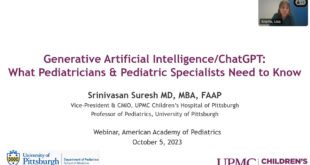Rising Dementia Risk Among Autistic Individuals
Recent studies have revealed a concerning trend: individuals with autism are at a significantly higher risk of developing dementia compared to neurotypical individuals. This alarming discovery has sparked discussions among experts, highlighting the need for further research and awareness.
Increased Risk in Autism Spectrum Disorder
Experts presented findings at the world’s largest dementia conference, suggesting that the rising prevalence of autism spectrum disorder (ASD) could be linked to an increased risk of dementia. With over 9 million Americans affected by dementia, the connection between autism and cognitive decline is becoming increasingly evident.
One study involving nearly 800,000 participants found that adults with autism and other intellectual disabilities were up to three times more likely to show signs of cognitive decline and dementia. Even autistic individuals under 50 were 30% more likely to be diagnosed with dementia than their neurotypical peers. Another study indicated that nearly one in three autistic adults exhibited at least two signs of cognitive decline, such as forgetting words or wandering at night.
Contributing Factors and Medications
Experts from Pennsylvania and Washington, DC, suggest that the increased risk may be due to higher rates of conditions like depression and diabetes in people with autism. These conditions can cause harmful inflammation in the brain. Additionally, certain medications, such as bladder drugs and Benadryl, which block neurotransmitters responsible for memory, may contribute to this risk.
Growing Prevalence of Autism
The number of children with autism in the US has risen dramatically, with one in 31 now diagnosed, compared to about one in 150 in the early 2000s. Experts believe this increase is due to better detection and increased awareness. However, health secretary Robert F Kennedy Jr. has announced studies to investigate environmental toxins, including pollution, ultra-processed foods, and ultrasound scans, as potential causes.
Long-Term Implications
Dr. Lindsay Shea, a study author and director at Drexel University’s AJ Drexel Autism Institute, noted that the first generation of autistic adults are now reaching their 80s and 90s. As dementia continues to rise, experts predict it could affect 14 million Americans by 2060.
Key Findings from Research
At the Alzheimer’s Association International Conference, researchers analyzed Medicare and Medicaid data from 2017 to 2019, involving nearly 800,000 Americans aged 30 and over. Participants were divided into four groups: autism, autism plus intellectual disability, and only intellectual disability. The results showed that 30% of adults over 65 with autism had dementia compared to 19% in the general population, a 45% increased risk. For those with both autism and intellectual disability, the rate was 32%, and among 50- to 64-year-olds, 8% of autistic individuals had dementia compared to 5% in the general population.
Cognitive Decline Indicators
Another study from George Washington University examined 210 independent and 500 dependent autistic adults. They reported signs of cognitive decline, such as trouble recalling tasks or words, impaired judgment, and changes in behavior. Caregivers noted issues like nighttime wandering and difficulty initiating conversations.
Dr. Gregory Wallace, a study author, highlighted that 30% of independent autistic individuals had two or more signs of cognitive decline, while 10% of dependent adults had caregivers report at least one sign. Common indicators included reduced interest in activities and everyday thinking problems.
Medication and Chronic Conditions
Nearly two-thirds of adults in the study were taking anticholinergics, which block acetylcholine, a crucial neurotransmitter for memory and learning. These drugs are used for various conditions, including urinary incontinence and COPD, which are more common in autistic individuals. Over-the-counter options like Benadryl and Advil PM also contribute to this risk.
Chronic conditions like depression, diabetes, and high blood pressure, which induce harmful inflammation in the brain, may also play a role. Dr. Shea emphasized that these conditions are more prevalent in autism, adding to the complexity of the issue.
Conclusion
The growing evidence linking autism to increased dementia risk underscores the importance of addressing the unique challenges faced by autistic individuals. Further research and targeted interventions are essential to support this vulnerable population and improve their quality of life.
 Info Malang Raya Its All About World News
Info Malang Raya Its All About World News




